Ahmad Mudhakkir
8th March 2016 - 7 min read
Short for foreign exchange, you may have heard the term bandied about online or in multiple adverts on your social feeds. But what exactly is it? Let’s go through a quick brief on the basics of foreign exchange.
It’s Currency Conversion, Right?
Yup. Forex trading then, is the practice of trading currency for profit. You know how exchange rates fluctuate over time? You can think of the exchange rate as the ‘price’ of a currency. The more attractive it is to do business with a particular country, the more ‘expensive’ the ‘price’ of that particular country’s currency (exchange rate) would be.
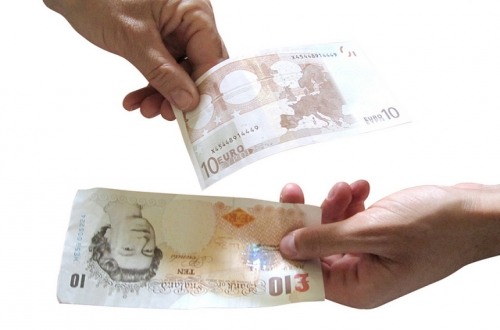
A simplified example would be, if Canadian Oil is in high demand, more people would want to buy Canadian Dollars to purchase that oil with and the ‘price’ (or exchange rate) of Canadian Dollars would rise.
If Currencies Have a Price, in What Currency Are We Paying That Price In?
You know when you go to the moneychangers, and you see that big chart with all the prices for the different currencies? Often those prices are expressed in Malaysian Ringgit, because with the business being a Malaysian one, usually that’s the currency customers would have on them. This expresses the main difference between buying currencies and buying any other commodity.
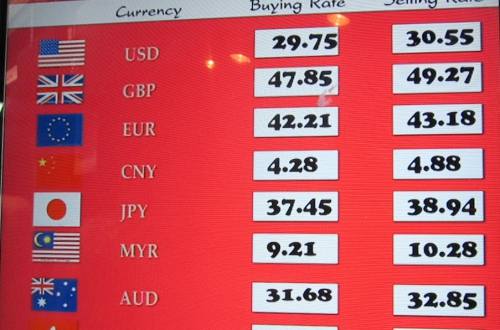
The ‘price’ or exchange rate for a currency depends on what currency you’re buying it from. That is to say, an exchange rate cannot be expressed in just one currency. You have to also state the currency you’re buying from. Exchange rates are typically expressed like this:
USD/GBP = 0.72
MYR/SGD = 0.33
EUR/CHF = 1.09
Which means that it takes 1 US Dollar to buy 0.72 British Pounds, 1 Malaysian Ringgit to buy 0.33 Singapore Dollars, and 1 Euro to buy 1.09 Swiss Francs. The currency on the left is called the ‘base currency’ while the currency on the right is called the ‘quote currency’.
The exchange rate is how much of the quote currency you need to pay to buy 1 unit of the base currency. Looking at the above, you can tell that an exchange rate that’s lower than 1 means the base currency is currently weaker (or of lower value) than the quote currency.
Currencies are also typically written using a 3-letter abbreviation, a bit like company names in the stock market.
So It’s Like Trading Stocks, Then?
Kind of. While stock trading relies on you buying a share of a company and hoping the value rises, in forex trading, since there’s always a pair of currencies involved in each transaction, you can also profit by betting on a currency to lose value.
Buying a base currency in the hopes of selling it in the future means you’re betting on the exchange rate to go up. The reason for that rate increase may be that the base currency is getting stronger, but it can also mean that the quote currency got weaker.
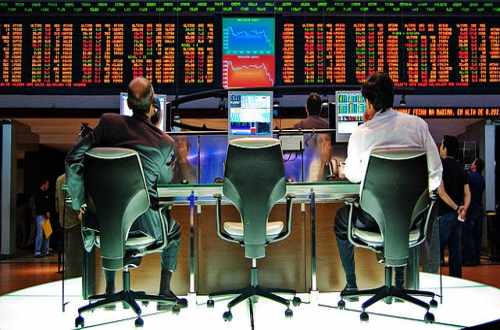
For example, if you buy 1000 units of the USD/GBP pair at an exchange rate of 0.72 (which means you exchanged 720 British Pounds for 1000 US Dollars), and the rate increases to 1.00 the next week, when you then sell your Dollars (that is to say, convert your USD back to GBP) you’ll have 1000 British Pounds, earning you a profit of 280GBP.
People Keep Telling Me to Try Forex Trading. Should I?
While we can’t make up your mind for you, we can break down the advantages and disadvantages of forex trading so you can make a better-informed decision.
Pros
Low Barrier of Entry
When compared to trading stocks, forex trading does not require a heavy investment to get started. With online forex brokers you can open a ‘mini’ or ‘micro’ forex account with as little as $25.
Low Transaction Costs
Forex trading can have very low costs compared to the brokerage and commisions charges that you would have to deal with in other financial trading. In fact, there are no commisions, really and the transaction cost is typically less than 0.1% under normal market conditions.
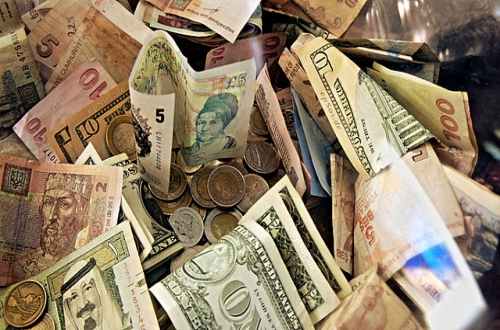
No Central Exchange
In the equity market, a company can suddenly delcare a dividend or report huge losses which in turn can drastically affect the prices out of the blue. Forex trading has no such central entity. The international market also has no regulators. This decentralised and deregulated feature of the forex market also means there is no possibility of insider trading; everything is dependent on global factors and developments.
High Liquidity
Compared with other financial markets, the forex market has the largest number of participants. This means your assets can always be sold to or bought by somebody somewhere.
Cons
It’s Deregulated
Due to its decentralised nature, forex trading is dominated by brokers and not by market regulators or central entities. This means that the forex market provides no incentive for brokers to be fully transparent with the trader. A trader may not be given full information on trading quotes, may not get the best price, or even not have control over how their trade order gets fulfilled.
The Market is Very Difficult to Predict
In stock trading, the variables that can affect the rise or fall of a stock is comparatively easier to figure out. You can gauge the business decisions of the shareholders, or how taxes or export/import rates affect a certain field of industry. But with foreign exchange, the variables are of a much wider breadth. From political stability, to foreign investment, to global news, there are way more things to keep in track of to trade effectively and profitably in forex.
To add to this, remember the example we give above where the USD/GBP rate starts at 0.72 and rises to 1.00 the week after? That’s almost never the way it works in real life. In actual forex trading, currencies are bought and sold every hour and the rate fluctuations are not measured by the cent, but by the pip. A pip, by the way is 0.0001th of a unit.
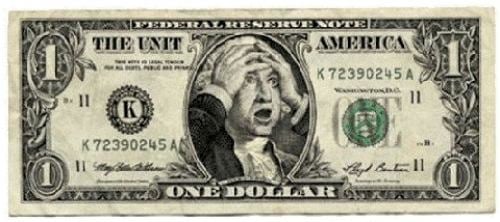
Entire book series, websites, and communities are dedicated to figuring out the best system to always be profitable in forex trading, but there isn’t a foolproof one yet since there are so many moving parts. It can look a lot like gambling if you’re not prepared to do plenty of studying up beforehand.
High Volatility
Another disadvantage to forex trading comes from how decentralised it is. In stock trading, when things go wrong with a particular stock, shareholders can put pressure on management to initiate the required changes or approach regulators. Forex traders have no such recourse if a currency nosedives. For example, when Iceland went bankrupt, forex traders holding onto Icelandic krona had no other option but to take their losses.
A Word on Forex Scams
Like we’ve said above, the forex trading market is decentralised which is good in some ways, but bad in others. There are unscrupulous people who act as dishonest online brokers offering incorrect quotes, people who try to sell expensive forex trading software, and other methods to dupe unsuspecting people out of their money.
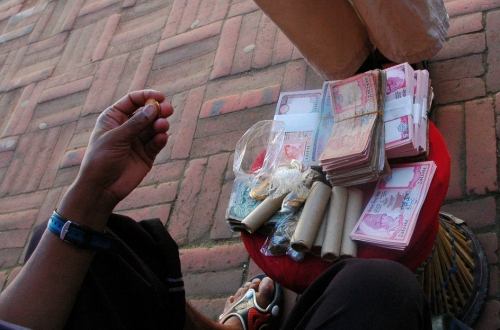
Forex trading is very attractive as an investment proposal because of its low barrier of entry, both financially, and knowledge-wise. But to make a reliable profit on it takes a long time, plenty of patience, guesswork, and a high risk tolerance.
There is more to discuss on the topic of forex trading as an investment tool but we hope this basic break down helps you understand the gist of it, and inspire you to learn more about it yourself should you so wish. If you’re skittish of even thinking about financial success, then maybe check out our article on the 4 excuses that keep you from getting your finances where they need to be.
Do you have any other questions about forex trading or forex in general? Do let us know in the comments section down below!
Photo credits: Images Money on flickr, Nick Hubbard – South East Asia Exchange Rates, Wonderlane on flickr, “Forex Money for Exchange in Currency Bank” by epSos.de, Dave Winer, Rafael Matsunaga.

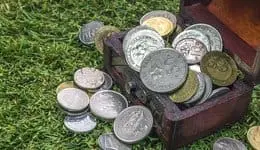



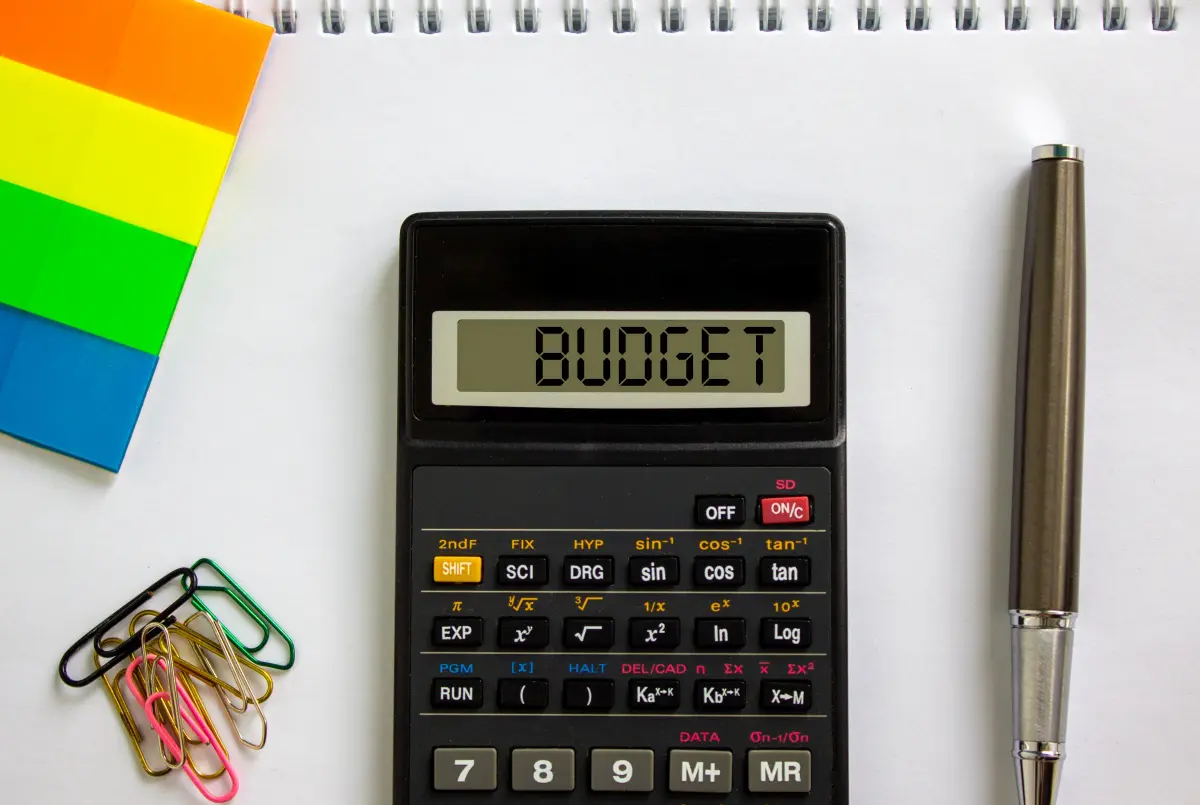



Comments (0)